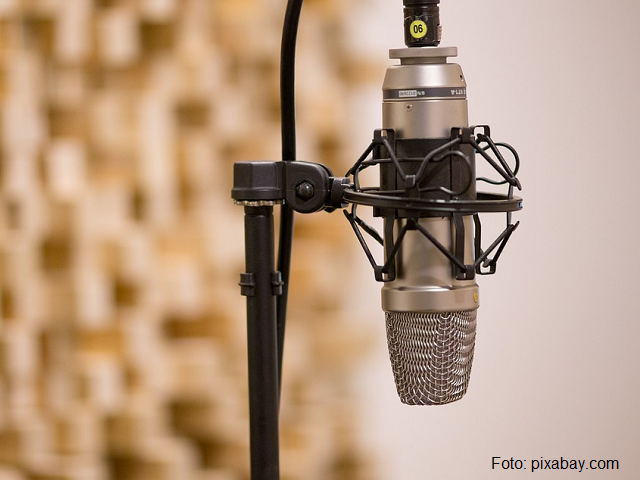Radio NOREA
Radio NOREA was one of the international radio stations to broadcast in Romanian during the Cold War.

Steliu Lambru, 22.07.2024, 14:00
Between 1945 and 1990, a number of international radio stations used to broadcast in Romanian. These were mainly stations from Western Europe and were targeted at the Romanian public in Romania in an attempt to make up for the failure of domestic stations to cover subjects of interest. One such international station broadcasting in Romanian was that belonging to NOREA, the Nordic Radio Evangelistic Association, a church mission society. NOREA began its first Romanian broadcast in 1971, but it was in fact one man who did it all, namely pastor and journalist Duțu Moscovici.
The beginnings of Radio NOREA can be traced back to Norway, a country with a majority Christian Lutheran population. The station broadcast from Monte Carlo, in the south of Europe. In time, the association’s station expanded to Denmark, where it set up its first recording studios. In 2000, Radio Romania’s Oral History Centre recorded an interview with Duțu Moscovici in which the latter recounted how he began his career as a radio journalist:
“I was in Lubeck, in Germany, with my wife, visiting a very famous church. While we were admiring a painting, someone approached us and asked me if I was pastor Moscovici from Romania. I said yet and it turns out I knew the man, he was a Hungarian pastor. At that time, he was working for the Hungarian section of Radio NOREA, in Oslo. I told him I was going to think about it and then after a while I said I agreed to do the Romanian broadcast. That was the beginning.”
Duțu Moscovici began recording at NOREA’s studio in Oslo. Denmark, which supported the project, built studios in Denmark, and Duțu Moscovici and the Romanian service grew attached to the new location. The pastor would travel once a month from Hamburg, where he lived, to Denmark and do all the recordings for the entire month. The tapes would then be sent to Monte Carlo by post, and Moscovici would always listen to the broadcasts when they were aired to make sure they got the order right. Radio NOREA’s Romanian language broadcast was aired once a week, on Friday, and lasted 15 minutes. Later, it grew to 30 minutes, to be followed by two broadcasts a day, 15 minutes each. It eventually began to broadcast every Saturday and Sunday at 6.30 pm Romania time.
Duțu Moscovici remembers what the broadcast consisted of:
“The broadcast began with the words: ‘From Radio Transmondial in Monte Carlo, you are listening to Radio NOREA’s evangelical broadcast in the Romanian language’. This was followed by a short intermezzo of instrumental music, the tune of the German hymn A Mighty Fortress is our God, the traditional song of the Lutheran Church around the world. We would begin with a short presentation of the programme. We would say that we are broadcasting a biblical study, a text about the Bible, or the biography of a missionary. The programme needed to be diverse, but the core was the presentation of a biblical text. We also had ‘words of the week’, a short quotation from the words of some important person, for example Blaise Pascal. We would also have a guest in the programme. I had such interviews with the bishops of Oslo; over 30 years there were a number of bishops and we hosted all of them. Even Norway’s prime minister Kjell Magne Bondevik was once a guest.”
Duțu Moscovici was also asked if he had full freedom with respect to the content of the broadcast:
“I had absolute freedom. However, there was one condition that we had to observe, but no one ever checked. The condition was not to interfere into political matters and not to have a critical attitude towards other religious denominations. We had to stick exclusively to the preaching of the gospel. The programme in Romanian was written by one person, me. Undoubtedly, many others contributed to the programme, but in fact everything was in the hands of a single person who had absolute power. No one was imposing anything on me, no one was controlling anything. It was a matter of trust.”
How did Radio NOREA correspond with its listeners in Romanian? Duțu Moscovici is back with details:
“At one point, we had to deal with the issue of letters from listeners. There was a time when the letters, if they were addressed to the radio station NOREA, were likely to be stopped by censorship in Romania, and their author could be in trouble. We had different approaches. For example, from our address we excluded the word ‘radio’, we kept only NOREA. I used to tell listeners that if they wanted to write to us, they should write NOREA, followed by the address in Denmark.”
Radio NOREA’s Romanian language programme had the mission of spreading Christian principles and values and encourage people to hope that better times would come. And for its listeners this effort mattered a lot.






























